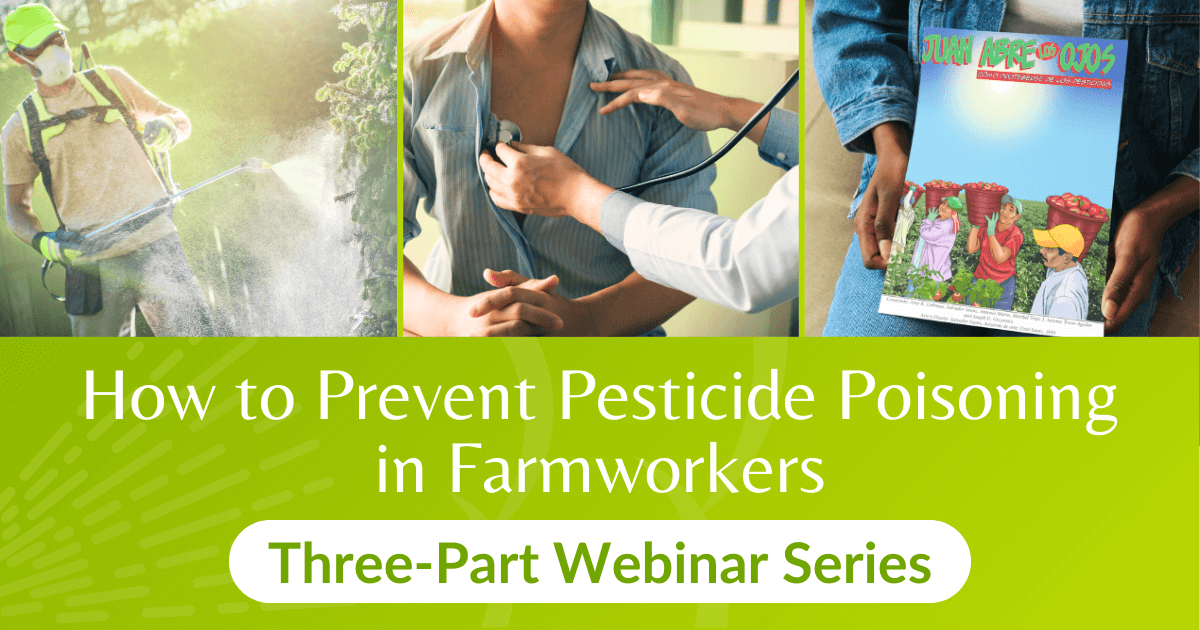

* This webinar will be provided in English with simultaneous interpretation into Spanish *
Farmworkers and their families are the population most overexposed to pesticides – but steps can be taken to ensure their health and safety are protected. When exposed to pesticides, farmworkers often cannot seek care or prevent future exposures, due to overlapping factors like fear of job loss and deportation, limited access to health care, lack of transportation, language differences and weak regulatory protections. Clinicians who care for farmworkers are often underprepared to address the prevention, recognition, and management of pesticide exposure. This three-part webinar series will draw on clinical case studies to help clinicians recognize and manage acute and sub-acute poisonings, understand the regulatory requirements and best practices related to pesticide exposures, and be familiar with clinical resources and culturally contextual educational materials to help farmworkers prevent exposures and know what to do in case of a poisoning.
Three Part Series
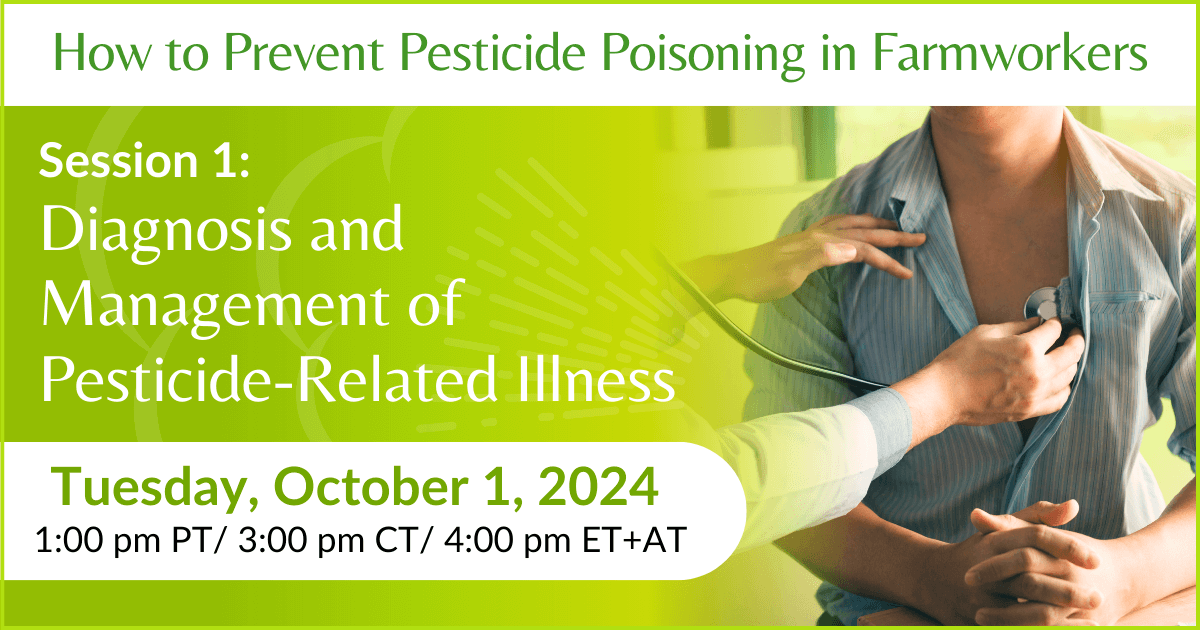
Diagnosis and Management of Pesticide-Related illness
Tuesday, October 1, 2024
Pesticide-related illnesses (PRI) pose a significant risk of harm in the US in both occupational and non-occupational settings. While underreporting is common, thousands of cases of pesticide poisonings are logged each year. The majority of work-related exposure occurs in agriculture. Farmworkers and their families are the population most overexposed to pesticides. This webinar reviews clinical cases to showcase how to recognize and manage pesticide-related illnesses, from initial triage, to the provision of resources for farmworkers, to fulfilling regulatory requirements and reporting obligations.
Presenter

Brett Shannon, MD, PhD
Brett Shannon, MD, PhD, is an occupational and environmental medicine specialist from Australia. He has undertaken occupational and environmental medicine work with clients in the agriculture, construction, mining, and aviation industries. In his practice he has evaluated patients occupationally exposed to pesticides and teaches about the recognition and management about pesticide poisonings. In 2021 he was the recipient of a John Monash foundation scholarship and has just completed a PhD in Environmental and Occupational Health Sciences at the University of Illinois Chicago School of Public Health. Dr. Shannon has been involved in the governance of minority health clinics in Australia for over a decade. He is the past Chair of the Brisbane Aboriginal and Torres Strait Islander Community Health Service and served as their director for nine years.
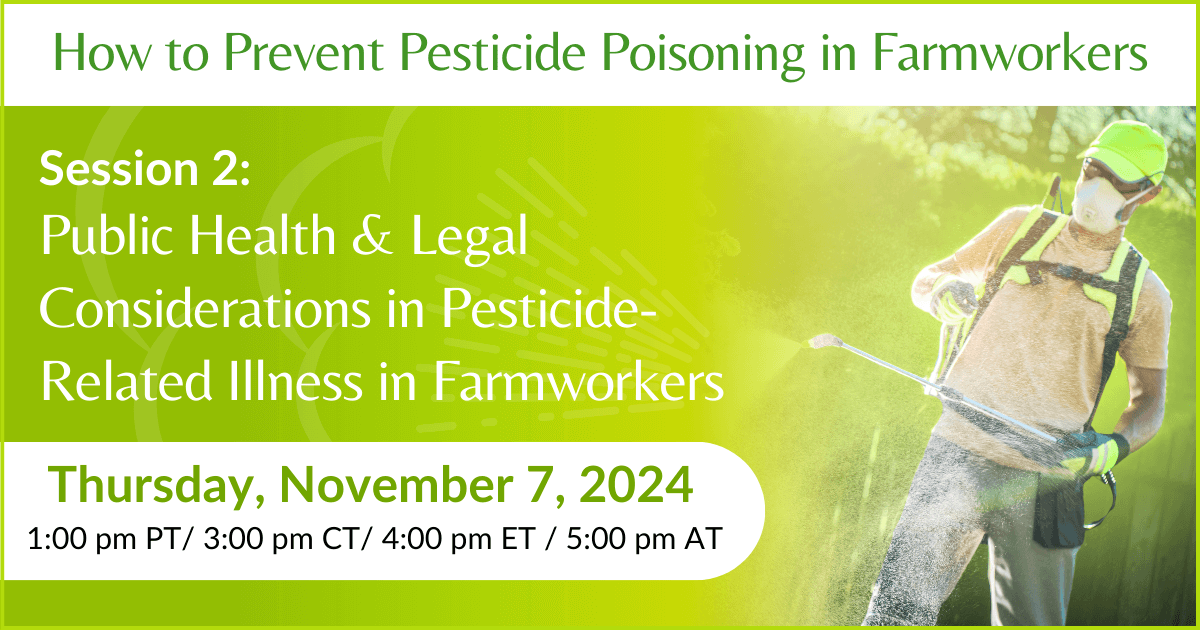
Public Health & Legal Considerations in Pesticide-Related Illness
in Farmworkers
Thursday, November 7, 2024
It has been estimated that nearly 90% of acute pesticide-related illness cases in farmworkers are not reported to public health authorities. Farmworkers’ perceptions of their condition, their ability to seek care, as well as misdiagnosis and completion of a thorough occupational history by their clinician are all known barriers to reporting. This webinar underscores the importance of understanding the type of work farmworkers do and taking a patient’s occupational history. It also overviews the Worker Protection Standard, the primary regulatory standard focused on protecting farmworkers from pesticide exposure, and the responsibilities and regulations regarding the clinician role in reporting. The webinar will review how to access and understand Safety Data Sheets for pesticides.
Presenter

Linda Forst, MD, MPH
Dr. Forst is a UIC School of Public Health faculty member in Environmental and Occupational Health Sciences. She is also a practicing physician, board-certified in Internal Medicine and Occupational Medicine. Her undergraduate degree is in Horticulture from Michigan State University, where she worked for Michigan Extension. She works with community organizations, outreach workers, labor unions, state and federal agencies, researchers, and employers. She has done research, teaching, and outreach with farmworkers, construction day laborers, temporary staffing workers, and others, addressing safety, health, and well-being as a worker’s right.
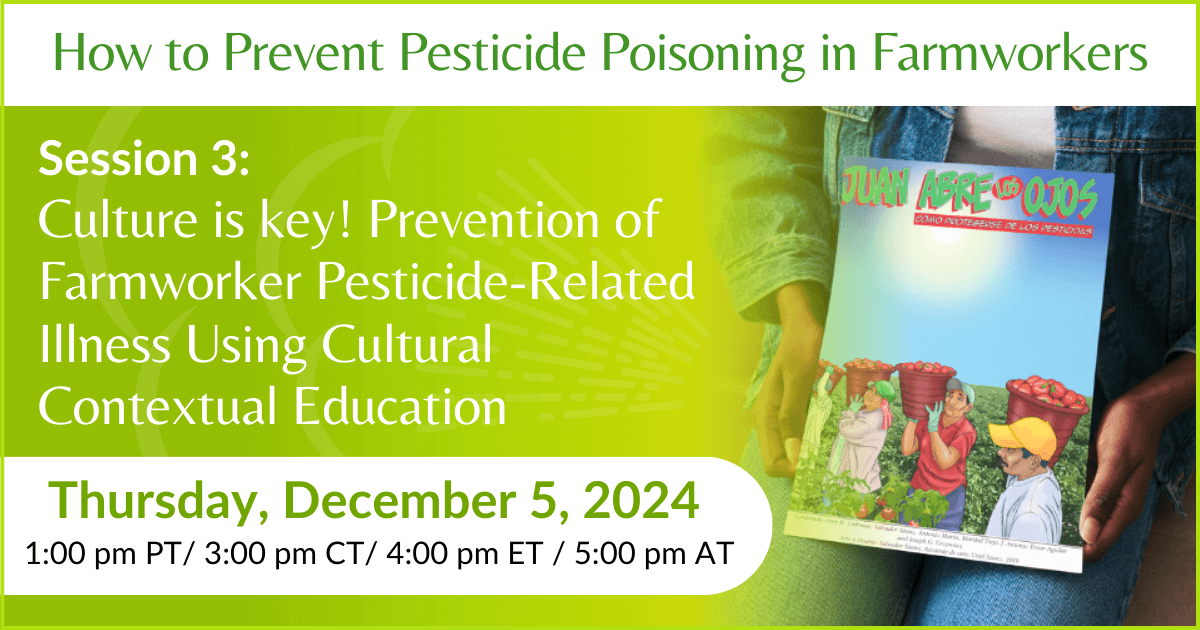
Culture is key! Prevention of Farmworker Pesticide-Related Illness Using Cultural Contextual Education
Thursday, December 5
There are over 2 million farmworkers in the United States. The overwhelming majority are immigrants and face barriers including fear of job loss, lack of access to healthcare, sick pay, transportation and adequate housing. This webinar will present challenges and barriers farmworkers face in preventing pesticide poisoning. It reviews culturally contextual strategies and educational materials to prevent pesticide-related illnesses among farmworkers and their families. Resources for community health workers and farmworkers will be reviewed.
Presenters

Amy K. Liebman, MPA, MA
Amy K. Liebman, MPA, MA has devoted her career to improving the safety and health of disenfranchised populations. She joined Migrant Clinicians Network (MCN) in 1999 and currently serves as the Chief Program Officer: Workers, Environment and Climate. With MCN she has established nationally recognized initiatives to improve the health and safety of immigrant workers and their families. She oversees programs ranging from integrating occupational and environmental medicine into primary care to designing worker safety interventions. She is a national leader in addressing worker safety and environmental justice through the community health worker (CHW) model. She has been a strong advocate for worker health and safety during the COVID-19 pandemic, leading programs to improve access to care and culturally contextual education for migrants and immigrants. Prior to her current position, she directed numerous environmental health and justice projects along the US-Mexico Border including an award-winning, community-based hygiene education program that reached thousands of families living without water and sewerage services. She has spearheaded policy efforts within the American Public Health Association to support the protection of agricultural workers and served on the federal advisory committee to the EPA Office of Pesticide Programs. Her programs have won several awards including the 2008 EPA Children’s Environmental Health Champion Award and the 2015 National Safety Council Research Collaboration Award. In 2011, Liebman received the Lorin Kerr Award, an APHA/Occupational Health and Safety Section honor recognizing public health professionals for their dedication and sustained efforts to improve the lives of workers. She is a past Chair of APHA’s Occupational Health and Safety. Liebman has been the principal investigator and project manager of numerous government and privately sponsored projects. She has authored articles, bilingual training manuals and other educational materials dealing with environmental and occupational health and migrants. Liebman has a master’s degree from the LBJ School of Public Affairs at the University of Texas at Austin, and a Master of Arts from the Institute of Latin American Studies at the University of Texas at Austin.
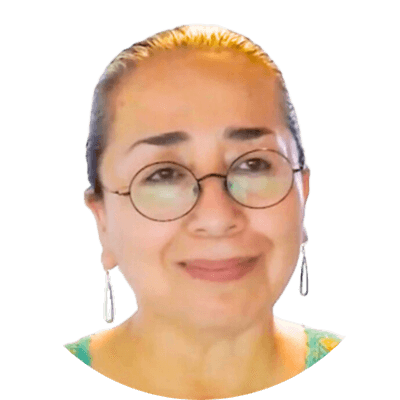
Alma R. Galván, MHC
Alma Galván, MHC (she/her/ella), is the Director of Community Engagement and Worker Training with MCN. Bicultural and bilingual, Galván has worked for more than three decades to improve the health of communities disadvantaged by structural inequities in the United States, Mexico, Puerto Rico, and Latin America. Her work has focused on a broad range of public health topics including infectious diseases, environmental health and justice, climate justice, worker health and safety, drug prevention, water and sanitation, cultural competency, and community development water and sanitation. She has worked with community-based organizations and international agencies such as the Pan American Health Organization. At Migrant Clinicians Network, she fosters innovative and participatory approaches to building capacity among immigrant and migrant communities and other underserved populations. She contributes to the development, implementation, and evaluation of multiple projects. Galván has extensive expertise in providing technical assistance and developing culturally contextual curricula and educational materials for Limited English Proficiency and low-literacy adult learners, community health workers, health professionals, health educators, and clinicians. Her unique approach to adult learning and expansive expertise in community-based approaches to health promotion helped hundreds of community health workers, clinicians and health department personnel bring culturally contextual COVID-19 resources and strategies to immigrant and migrant communities in order to promote vaccination and address mis/disinformation. Galván has worked extensively with MCN partners, community-based organizations, health agencies, and local and state health departments promoting health equity through language access and cultural competency. Galván has a strong health and social science background and has designed, implemented, and assessed programs for over 30 years. Galván is bilingual in English and Spanish. She is passionate and committed to addressing health inequities and lessening disparities. In her free time, Galván spends time with her family, and enjoys movies, reading, and learning about different cultures.

Maggie Acosta, MA
Maggie Acosta, MA is a public health researcher with experience in both rural and urban areas in the United States, India, and Peru. She uses a multi-scalar, mixed methods approach to better understand structural determinants of health and help strengthen health infrastructure. Her vision for health research is to not only study inequities and power, but to leverage the research process itself to enhance community capacity and build power as a central component in achieving health equity. Most recently, she worked in adolescent sexual health with the Centers for Disease Control and Prevention and in reducing recidivism at the Cook County Department of Corrections. While in Chicago, she has also worked closely with the Chicago Recovery Alliance, a grassroots harm-reduction agency, to reduce drug-related health inequities and build power among people who use drugs. She holds a BA in Neuroscience from Bowdoin College and an MA in Social Sciences with a focus in Medical Anthropology from the University of Chicago.
At the conclusion of this series, participants will be able to…
- Recognize and manage/triage acute and sub-acute pesticide poisoning in farmworkers;
- Act on legal requirements and best public health practices related to pesticide exposure;
- Discuss prevention of pesticide exposure at work and at home with farmworkers.
Presenters
Continuing Education Credit (CEU)

Application for CME credit has been filed with the American Academy of Family Physicians. Determination of credit is pending.

Migrant Clinicians Network is accredited as a provider of nursing continuing professional development by the American Nurses Credentialing Center's Commission on Accreditation.
